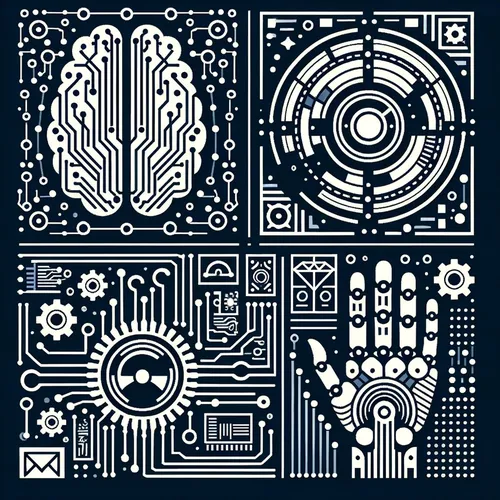Robots Steal Jobs: AI's Quantum Leap Sparks Investing Frenzy & Ethics Firestorm
- Author
- Quiet. Please
- Published
- Fri 29 Aug 2025
- Episode Link
- https://www.spreaker.com/episode/robots-steal-jobs-ai-s-quantum-leap-sparks-investing-frenzy-ethics-firestorm--67551134
This is you Emerging Technology Trends: AI, Robotics & Digital Innovation podcast.
Listeners tuning in today are witnessing an era where emerging technologies are advancing faster than ever, reshaping business, society, and even daily life. Artificial intelligence systems now drive unprecedented breakthroughs in automation, with 2025 marking a year where robots are equipped with sophisticated autonomy—thanks to advanced planning, pattern recognition, and predictive fault analysis. According to Nasdaq, the robotics market is projected to more than double from over seventy billion dollars in 2025 to more than one hundred fifty billion dollars by 2030, with industrial robotics especially dominating manufacturing through precision and consistency.
AI integration has allowed robots to interpret vast amounts of data, make real-time decisions, and predict maintenance needs—capabilities that are propelling industries to greater operational efficiency and competitive advantage. Cobots, or collaborative robots, are transforming workplace dynamics, making automation accessible not just for large manufacturers but also for small and medium-sized enterprises. Enhanced safety protocols and intuitive interfaces enable these cobots to work side-by-side with humans while learning and adapting quickly to new tasks, dramatically increasing workforce flexibility.
Cross-industry innovation is also surging, with the proliferation of AI and robotics startups. StartUs Insights reports industry growth topping twenty-eight percent in just twelve months, underscoring explosive R&D activity and a flood of new patents, particularly from technology centers such as the United States, China, and Europe. More than sixty-nine thousand professionals now work in AI robotics globally, with thousands joining each year—an indicator of immense investment in human capital.
Quantum computing and blockchain are making strides in logistics, cybersecurity, and finance. Quantum-enhanced AI models empower faster and more complex problem solving, while blockchain applications strengthen data integrity for robotics supply chains and the Internet of Things deployments. Meanwhile, the IoT sector is seeing ever-denser sensor networks that allow for real-time optimization in manufacturing, city infrastructure, and health care.
Recent news this week highlights Serve Robotics securing a major investment to expand autonomous delivery fleets in California, NVIDIA announcing a quantum AI accelerator platform targeting pharmaceutical and logistics innovation, and bipartisan support emerging in the U.S. Congress for a new regulatory framework addressing ethical robotics deployment. Policymakers are placing growing emphasis on digital ethics, equity in workforce transition, and frameworks for responsible AI, reflecting the urgency of navigating workforce disruption—Oxford Economics warns up to twenty million roles in manufacturing could be displaced globally by 2030. The imperative for targeted policies and workforce retraining has become a central theme.
For businesses and tech leaders, practical action items include upskilling talent in AI and automation, experimenting with digital twins for smarter operations, and actively participating in industry collaborations to stay ahead of compliance and ethical guidance. Investors should watch the rapid sector growth and target companies with leading R&D pipelines, especially those demonstrating resilience amid shifting tariffs and global supply chain challenges.
Looking ahead, listeners can expect deeper integration of generative AI, real-time robot adaptation, and accelerated industry convergence with quantum computing and blockchain. These trends promise to redefine how work gets done and who does it. Thank you for tuning in—join us next week for another look at the future. This has been a Quiet Please production, and for more, check out Quiet Please Dot A...
